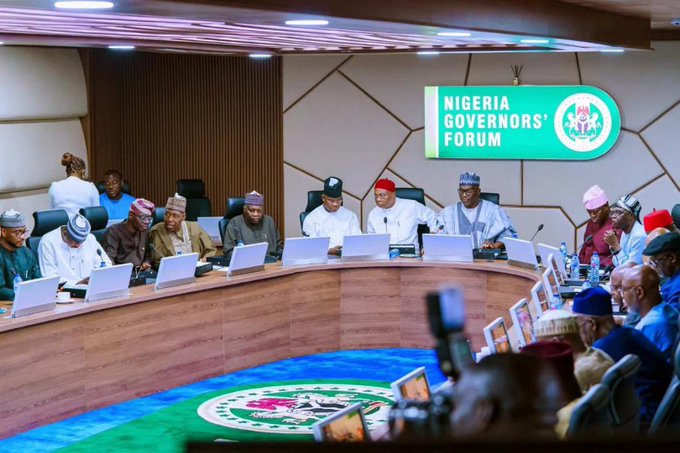The romance between organised labour and the Federal Government over the new national minimum wage may be temporary as the 36 State governors burst the parley on Friday, saying they cannot sustain the N60,000 being proposed by the government.
The governors said if they accept it, a few states would end up borrowing to pay workers monthly.
According to the governors, if they sustained the proposed N60,000 minimum wage by the Federal Government, many states would spend all their Federation Account Allocation Committee, FAAC allocations on just paying salaries with nothing left for development purposes.
The governors made their position on the matter known in a statement on Friday by the NGF acting Director on Media and Public Affairs, Hajiya Halimah Ahmed, titled, “The forum’s stand on the N60,000 minimum wage not sustainable: NGF”.
The statement read, “The Nigeria Governors’ Forum NGF, is in agreement that a new minimum wage is due.
“The Forum also sympathises with labour unions in their push for higher wages.
“However, the Forum urges all parties to consider the fact that the minimum wage negotiations also involve consequential adjustments across all cadres, including pensioners.
“The NGF cautions parties in this important discussion to look beyond just signing a document for the sake of it; any agreement to be signed should be sustainable and realistic.
‘Not sustainable’
“All things considered, the NGF holds that the N60,000 minimum wage proposal is not sustainable and cannot fly.
“It will simply mean that many states will spend all their FAAC allocations on just paying salaries with nothing left for development purposes.
“In fact, a few states will end up borrowing to pay workers every month. We do not think this will be in the collective interest of the country, including workers.
“We appeal that all parties involved, especially the labour unions, consider all the socio-economic variables and settle for an agreement that is sustainable, durable, and fair to all other segments of the society who have legitimate claim to public resources.”
Labour
Recall that members of the organised labour comprising the Nigeria Labour Congress, NLC, and Trade Union Congress, TUC, had on Tuesday, suspended their strike for five days
The strike which commenced on Monday was called to protest the failure of the Federal Government to approve a new minimum wage by May 31 as well as its failure to reverse the hike in electricity tariff.
After a six-hour meeting with the leadership of organised labour in Abuja on Monday night, the Federal Government expressed the commitment of President Bola Tinubu to raising the N60,000 offered as the minimum wage.
The agreement stated: “The President of Nigeria, Commander-in-Chief of the Armed Forces, is committed to establishing a National Minimum Wage higher than N60,000; and the Tripartite Committee will convene daily for the next week to finalise an agreeable National Minimum Wage.”
The organised labour also agreed to “immediately hold meetings of its organs to consider this new offer, and no worker would face victimisation as a consequence of participating in the industrial action.”
These resolutions were signed on behalf of the Federal Government by Minister of Information and National Orientation, Mohammed Idris, and Minister of State for Labour and Employment, Nkeiruka Onyejeocha.

